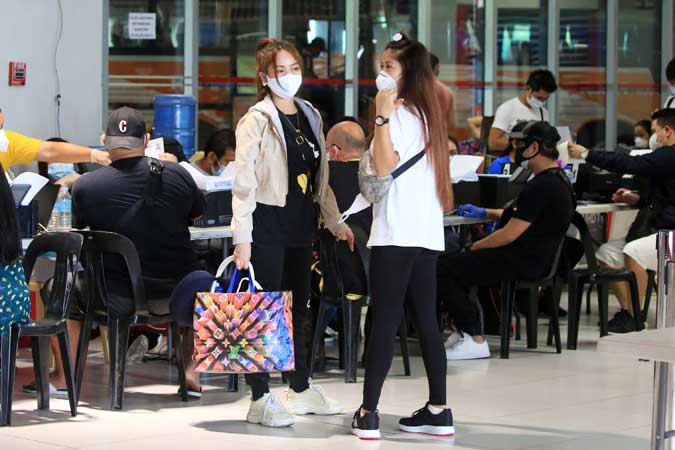
MONEY SENT HOME by Filipinos abroad rose for a second straight month, albeit at a slower pace as the global economic slowdown continued, the central bank said on Tuesday.
Data released by the Bangko Sentral ng Pilipinas (BSP) showed cash remittances coursed through bank channels rose 2.9% to $2.747 billion from $2.671 billion a year ago. This is the second straight month of year-on-year growth of remittances after the 9.3% recorded in September.
The October inflows were also higher by 5.6% than the $2.601 billion in September.
“The growth was attributed to the increase in remittances from land-based workers with work contracts of one year or more to $2.374 billion in October 2020, 3.3% higher than the $2.298 billion recorded in October 2019,” the BSP said in a statement.
Money sent by OFWs with less than a year of contract also inched up 1.2% to $612 million.
Analysts said the remittance trend in recent months proved to be better than expected given the ongoing crisis. UnionBank of the Philippines, Inc. Chief Economist Ruben Carlo O. Asuncion said he was actually expecting a 3.6% decline in inflows for October.
“The big story here is more of the OFWs’ resiliency and the timeless Filipino spirit of family first, such that, crisis times further amplifies this warm tradition,” Mr. Asuncion said in an e-mail.
Meanwhile, ING Bank N.V. Manila Senior Economist Nicholas Antonio T. Mapa said the slower pace of remittance growth in October from the September print may be due to some renewed restriction measures in some host nations as infections surged. These include some industry-specific restrictions for European countries such as the United Kingdom, the Netherlands, and Germany, among others.
Despite this, the recovery of remittance inflows is a welcome development to temper the impact of weaker incomes in the recession-stricken local economy, he said.
“The fact that remittances continue to rise even after 300,000 OFWs were repatriated and the global economy faces recession is truly impressive and a testament to the grit and heart of our modern-day heroes,” Mr. Mapa said in an e-mail.
Meanwhile, cash remittances for the 10 months to October slipped 0.9% to $24.633 billion from $24.858 billion in the same period of 2019.
“By country source, cash remittances from Saudi Arabia, Japan, the United Kingdom (UK), the United Arab Emirates (UAE), Germany, and Kuwait declined, while those from the United States (US), Singapore, Qatar, Oman, Hong Kong and Taiwan increased,” the central bank said.
The biggest remittance market was the US, where 40.2% of the inflows were sourced. Remittances from the US, Singapore, Saudi Arabia, Japan, UK, UAE, Canada, Hong Kong, Qatar and Taiwan made up 78.7% of the total.
“The US economy has largely remained open even amidst the coronavirus outbreak and this has somehow helped with continuing positive levels of OFW remittance inflows,” Mr. Asuncion said.
Cash remittances could fall by 2% this year, based on BSP projections.
Meanwhile, personal remittances — which include inflows in kind — rose 2.5% to $3.044 billion from $2.969 billion a year ago. Year-to-date inflows dipped 1% to $27.346 billion from $27.612 billion in the first 10 months of 2019.
The remaining two months of 2020 will bring in continued growth in remittances given the usual holiday flows, said Mr. Asuncion. He expects remittance could range from a growth of 0.1% to -2% for 2020.
Amid the likely increase in remittances for the Christmas season, OFWs may be forced to send more as the peso appreciation story stretches on, Mr. Mapa said.
The peso has been playing around the P48-per-dollar level in recent weeks. It closed at P48.063 on Tuesday, depreciating by 1.30 centavos from its P48.05 finish on Monday, data from the Bankers Association of the Philippines showed. — Luz Wendy T. Noble
